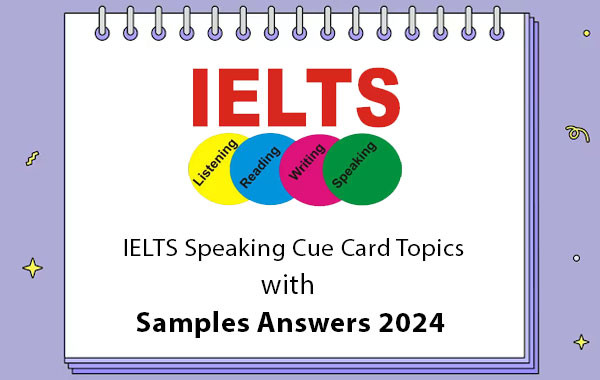Table of Content
- Overview
- Describe a Historical Period You Would Like to Know More About: Ancient Greece During the Golden Age (5th–4th Century BCE)
- Describe a Historical Period You Would Like to Know More About: The Renaissance in Europe (14th–17th Century)
- Describe a Historical Period You Would Like to Know More About: The Industrial Revolution in Britain (18th–19th Century)
- Describe a Historical Period You Would Like to Know More About: The American Civil Rights Movement (1950s–1960s
- Some Best Followed Up Questions for IELTS Cue Card Topic
- Other IELTS Cue Card Topics
- Conclusion
Describe a Historical Period You Would like to Know More About
The IELTS Speaking exam is divided into three sections: the introduction, the cue card round, and the follow-up discussion round. During the cue card round, you will be given a topic and one minute to prepare. You will then discuss the topic for two to three minutes.
One of the cue card topics you might encounter is "Describe a historical period you would like to know more about." To excel in this section, it's crucial to prepare thoroughly and respond effectively. In this article, we will provide sample answers and expert guidance to help you master this topic.
During the follow-up discussion round, the examiner will ask questions related to the cue card topic. Being well-prepared will enable you to confidently and coherently discuss the historical period of your choice. By reading on, you'll gain valuable insights and tips to boost your confidence and IELTS score.
What You Need to Explain for This IELTS Cue Card Topic: Describe a Historical Period You Would Like to Know More About.
Explain:
- What period do you want to know about?
- Why do you want to know about it?
- How do you think you would learn about it?
Sample Answers to Describe a Historical Period You Would Like to Know More About
Describe a Historical Period You Would Like to Know More About: Ancient Greece During the Golden Age (5th–4th Century BCE)
Introduction
One historical period I am deeply fascinated by is Ancient Greece during its Golden Age, specifically the 5th to 4th century BCE. This era witnessed remarkable advancements in philosophy, art, politics, and science, which continue to shape modern civilization.
What Period Do You Want to Know About?
The Golden Age of Greece was a transformative time led by city-states like Athens. It produced iconic philosophers like Socrates, Plato, and Aristotle, as well as groundbreaking works of art, drama, and architecture. The era also saw the birth of democracy and significant military victories, such as those in the Persian Wars.
Why Do You Want to Know About It?
I want to explore this period because it represents a time of intellectual brilliance and cultural achievement. Ancient Greece laid the foundation for modern philosophy, political thought, and artistic expression. Understanding how the Greeks made such progress could provide insights into how societies flourish. Additionally, I’m captivated by their stories, myths, and the way they sought to balance reason and creativity.
How Do You Think You Would Learn About It?
To learn more about this era, I would start by reading books and articles by historians and scholars specializing in Greek history. Documentaries and museum exhibits showcasing Greek artifacts and reconstructions of their architectural marvels like the Parthenon would be helpful. I’d also like to visit Greece someday to see historical sites like the Acropolis and Delphi, immersing myself in the environment where these events unfolded.
Final Words
The Golden Age of Ancient Greece is a period that inspires me with its achievements in human thought and creativity. Learning more about it would not only satisfy my curiosity but also deepen my appreciation for the lasting impact of their contributions on today’s world.
Describe a Historical Period You Would Like to Know More About: The Renaissance in Europe (14th–17th Century)
Introduction
One historical period I would love to learn more about is the Renaissance, which spanned roughly from the 14th to the 17th century in Europe. This period is renowned for its revival of art, literature, and scientific thought, often described as the bridge between the Middle Ages and modern history.
What Period Do You Want to Know About?
The Renaissance was a cultural and intellectual movement that began in Italy and spread throughout Europe. It gave rise to legendary figures like Leonardo da Vinci, Michelangelo, and Shakespeare, who made groundbreaking contributions to their fields. The period also marked the rediscovery of classical knowledge and the emergence of humanism, emphasizing human potential and creativity.
Why Do You Want to Know About It?
I am particularly intrigued by the Renaissance because it was a time of extraordinary innovation and creativity. This era revolutionized art with the development of perspective and realism. It also marked significant scientific progress, with figures like Galileo and Copernicus challenging traditional beliefs. The Renaissance influenced political thought, education, and even exploration, such as the voyages of Christopher Columbus. Understanding how this era reshaped the world would provide valuable insights into the transformative power of knowledge and creativity.
How Do You Think You Would Learn About It?
To delve deeper into this period, I would read books, watch documentaries, and explore online resources about Renaissance art, history, and science. Visiting European cities like Florence, Rome, and Venice, which were epicenters of the Renaissance, would also be enlightening. Museums such as the Uffizi Gallery in Florence and the Louvre in Paris house masterpieces from this era that I would love to see in person.
Final Words
The Renaissance is an inspiring period that reflects humanity’s ability to overcome challenges and achieve greatness through innovation and knowledge. Learning more about it would help me better understand how it shaped the modern world and continues to influence us today.
Describe a Historical Period You Would Like to Know More About: The Industrial Revolution in Britain (18th–19th Century)
Introduction
The Industrial Revolution in Britain during the 18th and 19th centuries is a historical period I would like to learn more about. It was a transformative time that marked the transition from agrarian societies to industrialized ones, profoundly changing economies, societies, and technologies worldwide.
What Period Do You Want to Know About?
The Industrial Revolution began in Britain in the late 1700s and continued into the 1800s. It was characterized by groundbreaking advancements in industries such as textiles, manufacturing, and transportation. Inventions like the spinning jenny, the steam engine, and the power loom revolutionized production. This period also saw the rise of factories, urbanization, and significant changes in the labor force.
Why Do You Want to Know About It?
I am interested in this period because it laid the foundation for the modern industrialized world. Understanding how innovation, resource utilization, and economic practices during this time shaped today’s global economy fascinates me. Additionally, it would be enlightening to study the social and cultural impact of the revolution, such as improved living standards for some and the challenges faced by workers in rapidly growing cities.
How Do You Think You Would Learn About It?
To explore this period, I would read books and articles focusing on key figures like James Watt and Richard Arkwright and their contributions. Watching documentaries and movies about the era would help bring it to life. Visiting museums such as the Science Museum in London or the Ironbridge Gorge in Shropshire, considered the birthplace of the Industrial Revolution, would provide hands-on learning opportunities.
Final Words
The Industrial Revolution was a pivotal chapter in human history that reshaped economies and societies. Learning more about it would deepen my understanding of how innovation and industrialization have influenced modern life and continue to shape the future.
Describe a Historical Period You Would Like to Know More About: The American Civil Rights Movement (1950s–1960s)
Introduction
The American Civil Rights Movement of the 1950s and 1960s is a historical period I would love to explore further. It was a defining era in U.S. history, marked by the fight against racial segregation and the push for equality and justice for African Americans.
What Period Do You Want to Know About?
This movement spanned roughly from the mid-1950s to the late 1960s. It was a time of significant social change, led by iconic figures like Martin Luther King Jr., Rosa Parks, and Malcolm X. Key events included the Montgomery Bus Boycott, the March on Washington, and the Civil Rights Act of 1964, which outlawed discrimination based on race, color, religion, or national origin.
Why Do You Want to Know About It?
I want to learn more about this period because it symbolizes courage, resilience, and the power of collective action. The movement not only transformed American society but also inspired global struggles for human rights. Understanding the strategies and sacrifices of those involved would offer valuable lessons on leadership, advocacy, and the ongoing fight against discrimination.
How Do You Think You Would Learn About It?
To delve into this era, I would read biographies of leaders like Martin Luther King Jr. and Malcolm X, as well as books like Why We Can’t Wait and The Autobiography of Malcolm X. Watching documentaries such as Eyes on the Prize and visiting historic landmarks like the National Civil Rights Museum in Memphis would provide deeper insights. Additionally, exploring archives of speeches, photographs, and interviews from the time would offer firsthand perspectives.
Final Words
The American Civil Rights Movement was a monumental period that reshaped societal values and policies. Learning about it would enhance my understanding of justice, equality, and how collective action can create lasting change.
Some Best Followed-Up Questions for IELTS Cue Card Topic: Describe a Historical Period You Would like to Know More About
Q1: Why are historical periods important to study?
Answer: Historical periods help us understand the past, including societal, cultural, and political changes. They provide valuable lessons for solving present-day issues and shaping the future.
Q2: Do people in your country take an interest in history?
Answer: Yes, many people in my country are interested in history, especially regarding ancient civilizations, freedom struggles, and cultural heritage. History is taught in schools and celebrated through festivals.
Q3: How can historical knowledge benefit people in everyday life?
Answer: Historical knowledge helps people make informed decisions, appreciate diverse cultures, and avoid repeating past mistakes. It also fosters a sense of identity and pride.
Q4: How can technology improve the way we learn about history?
Answer: Technology allows virtual tours of historical sites, interactive learning through apps, and access to digital archives. It makes history engaging and more accessible to a global audience.
Q5: Why do some people find history boring?
Answer: Some find history boring because they focus on dates and events rather than the stories and human experiences behind them. Lack of engaging teaching methods also contributes.
Q6: Is it more important to study ancient history or recent history?
Answer: Both are important. Ancient history teaches us about civilizations' foundations, while recent history provides insights into modern events and their impacts on current society.
Q7: Should schools give more importance to local or world history?
Answer: Schools should balance both. Local history fosters cultural identity and pride, while world history promotes global understanding and interconnectedness.
Q8: How do historical events shape a country’s culture?
Answer: Historical events influence traditions, laws, art, and values. For example, independence movements often lead to national holidays and inspire cultural pride.
Q9: Are movies and TV series effective in teaching history?
Answer: Yes, if they are accurate. They make history relatable and engaging but should be supplemented with factual sources to avoid misconceptions.
Q10: Why do some historical periods get more attention than others?
Answer: Some periods receive more attention due to their profound impact on society, such as revolutions, wars, or golden ages of art and science.
Q11: Can learning about history help solve modern problems?
Answer: Absolutely. Understanding history helps identify patterns, learn from mistakes, and adopt solutions that worked in similar situations in the past.
Q12: Should historical monuments be preserved? Why?
Answer: Yes, they are tangible links to the past, offering educational value and cultural significance. They also boost tourism and foster community pride.
Other IELTS Cue Card Topics
- Describe A Park Or A Garden In Your City
- Describe A Person You Know Who Likes To Talk A Lot
- Describe A Job You Would Not Like To Do In The Future
- Describe A Character From A Movie
- Describe An Outdoor Activity You Did
- Describe A Development In Your Country
- Describe A Place Where You Would Like To Go To Relax
- Describe A Piece Of Technology That You Find Difficult To Use
- Describe A Historical Place You Have Visited
- Describe An Unusual Holiday You Had
- Describe a New Store/Shop in Your Town/City
- Describe the Game You Enjoyed Playing When You Were Younger
- Describe an Advertisement That You Don’t Like
- Describe a Successful Person Who You Once Studied or Worked With
- Describe a Sportsperson That You Admire
- Talk About an Interesting Old Person You Met Recently
- Describe Your Favorite Singer
- Describe a Cafe You Like To Visit
- Describe a Time When You Observed the Stars
- Describe a Place You Visited Where the Air Was Polluted
Conclusion
In conclusion, mastering the IELTS Speaking exam requires strategic preparation and effective communication. By understanding the cue card round format and practicing responses to topics like "Describe a historical period you would like to know more about," you can significantly enhance your confidence and performance. This blog aims to provide valuable insights, expert guidance, and sample answers to support your IELTS preparation journey. I hope this blog helps you navigate the complexities of the IELTS Speaking exam and achieve your desired score. With dedication and practice, you'll be well on your way to success. Good luck with your IELTS exam!




.png)


Leave a Reply